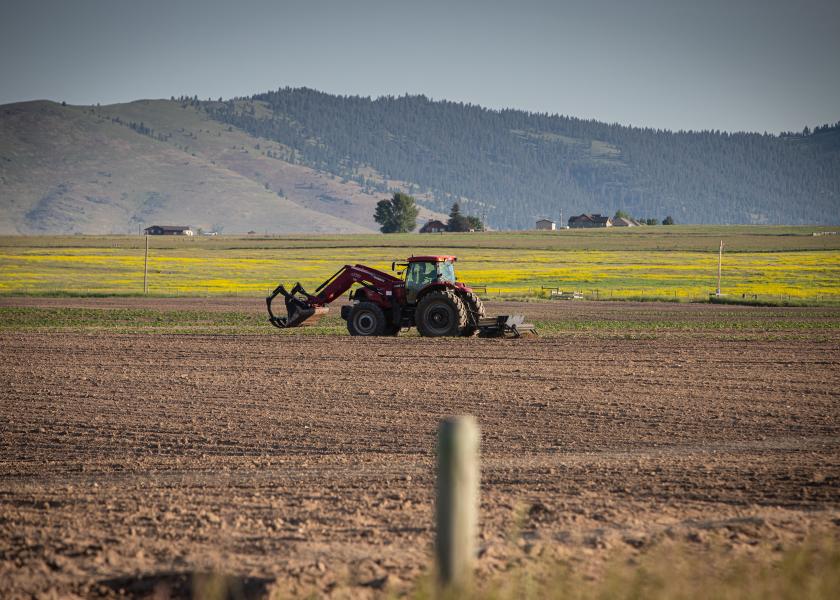10 Questions to Ask Before Signing a Carbon Credit Contract

No two carbon credit contracts are written the same, and that is why Texas A&M AgriLife Extension Service agricultural law specialist Tiffany Lashmet, J.D., said there is a list of considerations she advises everyone to take before entering a carbon credit contract.
“That fine print is really important,” Lashmet said. “Don’t read the first paragraph, then the dollar amount, and be done.”
She recommends all landowners seeking to enter into a carbon credit contract ask up front if the company is willing to negotiate, as this will save a lot of time and trouble. Similarly, she recommends finding a good attorney to look the contract over for you. These contracts have many details that need attention before signing any document.
Questions to answer before signing a carbon contract
- Have you read the entire contract? Read all of it. Every contract includes details in the fine print that can be problematic.
- What agricultural practices are required within this contract? For example, some contracts may mention no-till farming, reduced tillage, cover crops or regenerative grazing. Make sure you understand what is required to comply with the specific contract.
Similarly, watch for terms like “conservation practices” that are vague and undefined. Also, be aware that some contracts have “additionality clauses” that might prohibit producers from entering into the contract if they already have certain production practices in place for a certain period.
- How will payments be structured? Do more than just look at the dollar amount. Understand if the payment is based on practice or outcome or if the structure is a flat per-acre fee or price per ton of carbon dioxide equivalent, CO2e. Know what is included in the measurements – carbon, carbon dioxide equivalent or greenhouse gases, for example.
Also, make sure you understand the potential for sequestration in your fields, as it can vary by locality. The national average is 0.6 ton of C02e per year; however, it is estimated to be 0.1 ton of C02e per year in some areas of Texas, such as the High Plains.
- What is the term length of the contract? Are there any mentions of extensions? Look for a discussion of “permanence” that may require a producer to abstain from a certain activity for a set time. Explore what rights both you and the company have to terminate the contract, if desired.
- How will the verification of carbon credits happen? For example, will confirmation be based on modeling or measurements? All contract participants should know when, where, how often, how many sites and who will be doing the measurements with what methods. On a similar note, find out who is responsible for paying for this verification.
Check for “no reversal” clauses that could cost you if the amount sequestered becomes lower instead of increases, and be aware of the factors in your area that may impact the amount you sequester. For example, drought can potentially reduce the amount of carbon sequestered in any given year. Are there any provisions for the landowner/producer to audit or appeal determinations or measurements?
- What other uses can you make of the land? Does the contract restrict hunting, oil and gas production or wind or solar energy production if those concern your operation?
- What penalties can be imposed on you? What triggers a penalty? Understanding the consequences and penalties that may be imposed if the contract is terminated early is critical.
- How broad is the stacking prohibition? Nearly all contracts limit a producer’s ability to enroll the same land in multiple carbon contracts. However, some contracts are written more broadly and may also exclude enrollment in government programs.
- What data must you provide? Be aware that some contracts require you to provide extensive data on production, including fuel use, calving dates, birth weights, yields, pesticide application volumes, fire history, etc. Also, watch for blanket entry rights onto your property and permissions to fly drones anytime over your entire operation, not just over the property enrolled in the carbon contract.
- Do you understand the legal considerations? All of the contracts will have a number of clauses related to technical legal issues. Know what it says about rights to assign the contract, attorney fee provisions, payment for negotiating and drafting the contract, choice of law, venue clauses, dispute resolution and class action waivers, and the scope of any waiver clauses.
Bottom line on carbon credit contract
There are a number of different companies offering contracts to producers across the country, from forest landowners to row-crop farmers to rangeland owners, Lashmet said. But every operation is unique, and every contract is different, meaning producers must carefully consider various factors before entering into an agreement.
“Put pencil to paper and determine if the likelihood of payment will be worth the practices you must do under the contract,” Lashmet said. “It is critical to ensure that the anticipated return exceeds the anticipated costs of switching to one of the qualifying carbon-friendly practices.
For further information or discussion, explore Lashmet’s Ag Law in the Field podcast or her Texas Agriculture Law Blog on this subject.







